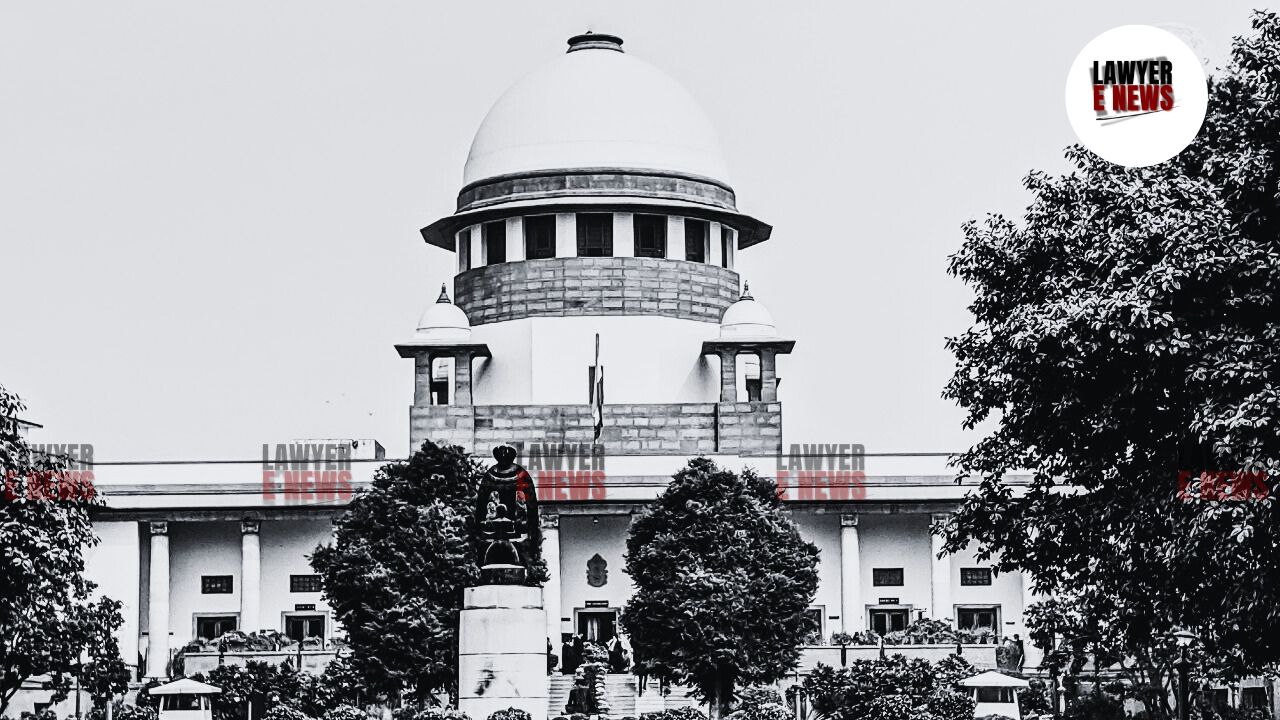-
by Admin
15 February 2026 2:36 AM



Supreme Court granted relief to a 70-year-old appellant by extending the benefit of probation under the Probation of Offenders Act, 1958, in a decades-old family feud case. The bench, comprising Justice B.V. Nagarathna and Justice Nongmeikapam Kotiswar Singh, invoked Article 142 of the Constitution to rectify sentencing disparity, considering a settlement between the two feuding family groups and the advanced age of the appellant.
The case involved cross-complaints stemming from a violent clash within the same family in 1993, leading to two separate criminal trials with differing outcomes.
The appellant, Ramesh, along with others, faced charges under various sections of the Indian Penal Code (IPC), including Sections 326 (causing grievous hurt), 325 (voluntarily causing grievous hurt), 452 (house trespass), and 323 (voluntarily causing hurt). The case arose from an incident on January 1, 1993, when two factions of the same family engaged in a violent altercation, resulting in cross-complaints.
Case Against Ramesh: The complainant Chhotu alleged that Ramesh and others attacked his family. This led to FIR No. 1/1993, culminating in Sessions Case No. 31/1993, where Ramesh was convicted by the Additional Sessions Judge, Gangapur City, in 1995. The High Court later acquitted him of graver charges under Sections 307 (attempt to murder), 148, and 149 IPC but upheld his conviction under Sections 326, 325, 452, and 323 IPC, sentencing him to six months imprisonment.
Cross-Case: The second complaint, filed by Ramesh’s group, resulted in FIR No. 9/1993 and Criminal Case No. 584/1998, tried before the Judicial Magistrate, District Karauli. In 2019, the court acquitted the accused of lesser charges and convicted them under Sections 148/149 IPC but extended the benefit of probation due to a settlement between the parties.
The Court recognized that the two cases were cross-complaints arising from the same transaction on the same day, involving the same family. The Court took note of the settlement reached during the pendency of the cross-case trial and observed that the Magistrate in Criminal Case No. 584/1998 had considered the settlement and granted probation to the other group of accused.
The Court highlighted the inconsistency in the treatment of the accused in the two cases. While the accused in the cross-case were granted probation, the High Court denied similar relief to Ramesh, despite the identical nature of the disputes.
"The two criminal cases were cross-cases arising out of the same transaction. There is no reason why the benefit of probation should not be extended to the present appellant," the bench observed.
The Court noted that Ramesh, aged 70, had already undergone over four months of the six-month sentence imposed by the High Court. The Court also emphasized that there were no criminal antecedents or adverse material against Ramesh, further justifying the extension of probation.
To ensure complete justice, the Court invoked its powers under Article 142 of the Constitution and Section 11 of the Probation of Offenders Act to grant relief to the appellant.
"Considering the settlement between the parties, prolonged criminal proceedings, and the appellant’s advanced age, we are inclined to extend the benefit of probation to the appellant," the Court stated.The Supreme Court allowed the appeal and extended the benefit of probation under Section 4 of the Probation of Offenders Act to Ramesh. Key directions included:
Release on Probation: Ramesh was directed to furnish a personal bond of ₹10,000 and a surety of like amount for a period of six months, with an undertaking to maintain peace and good conduct.
Prosecution Costs: Under Section 5 of the Probation Act, Ramesh was ordered to pay ₹100 towards prosecution expenses.
Regularization of Interim Bail: The appellant, who was on interim bail since January 2, 2025, was directed to comply with the conditions for probation.
The Court clarified that its decision was influenced by the settlement between the parties, the lack of adverse material against the appellant, and the principles of parity in sentencing.
The Supreme Court’s ruling underscores the importance of parity in sentencing, particularly in cross-cases arising from the same transaction. By invoking its extraordinary jurisdiction, the Court ensured that justice was served equitably, considering the appellant’s age, prolonged litigation, and the amicable resolution of disputes.
This judgment serves as a precedent for fair sentencing in cases involving similar circumstances, emphasizing the rehabilitative approach of the Probation of Offenders Act.
Date of Decision: January 9, 2025
